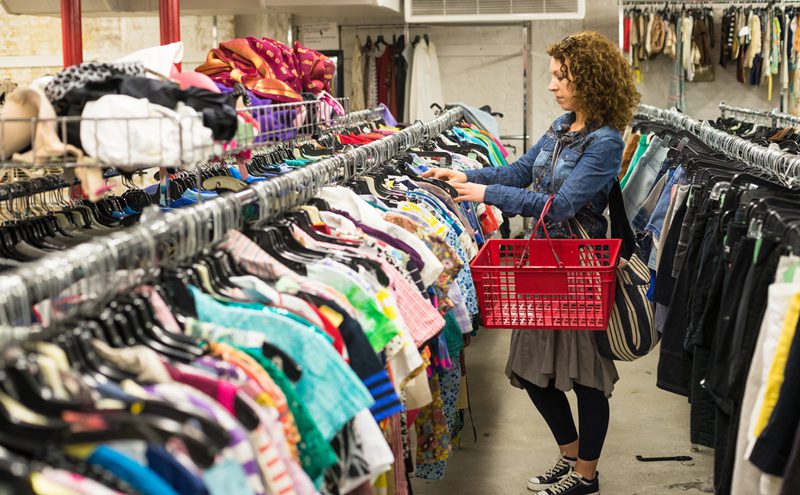
The average woman does not use 60% of her wardrobe, and with fashion trends continuously changing, this figure is set to rise, says online marketplace OnBuy.com, which has compiled data from fashion resale websites, google trends and retail reports to examine whether resale could be the answer to the issue of textile waste.
Last year, the UK saw a 9% increase in the carbon footprint of clothing from 2012. This might be attributable to the relatively low price of fashion, and population growth. After housing, transport and food, clothing has become the fourth largest pressure on our natural resources.
Steve Creed, Director of Business Programmes at WRAP (Waste & Resources Action Programme) has said that we must “address this huge challenge; we all need to learn to value our clothes more.”
This appears to be the case with millennials, who are shopping second hand, or ‘thrifting’, more often than their parents ever have. Studies by resale company thredUP suggest millennials’ attitude to shopping resembles that of their grandparents’, for whom making do was just a part of life.
The effect of this thrifty attitude is clear: the amount of clothing in household residual waste in the UK has reduced by 50,000 tonnes since 2012.
With clothes having an average lifespan of 3.3 years, and an average time in our wardrobes of just over 1 year, selling your apparel seems a solution. Re-use and recycling offer carbon savings because the lifetime of the clothing is extended. Where this displaces the sale of a new garment, the effects on the environment from processing are avoided.
Textiles temporarily avoid becoming waste through online private sales, and OnBuy.com says its research highlights a trend towards shop for clothes on resale sites. Here were some of its key findings:
• Millennials are 2.4 times as likely to be motivated by eco-friendly reasons to shop
• 3 in 10 millennials have shopped second-hand in the past 12 months, with a further 2 in 10 saying they intend to do so.
• 75% of millennials admit to being motivated by environmental factors when shopping resale.
As a nation, we now tend to keep our clothes longer, launder them at lower temperatures and tumble-dry and iron them less. The focus now seems to be on giving clothes a longer lifespan, and another loving home, says OnBuy.com.







